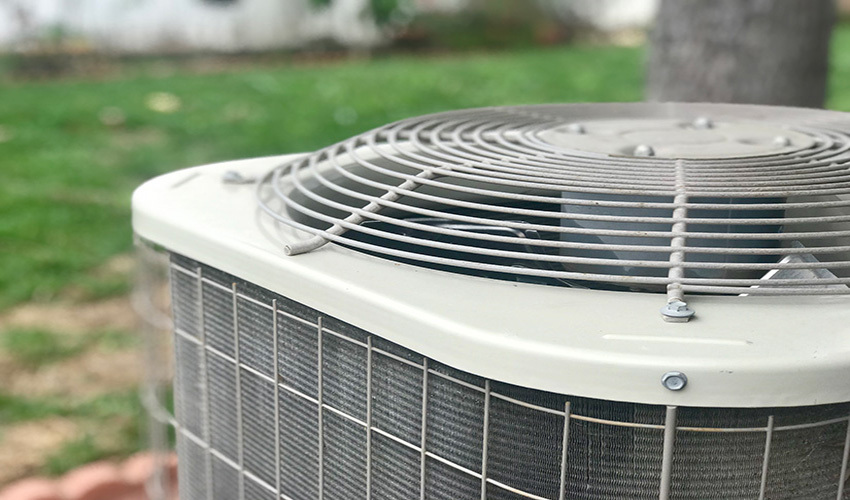Should I Build an Air Conditioner Fence?

Last updated: 9/16/2023
Does your air conditioning unit stand out like a sore thumb, detracting from the tranquil beauty of your home’s outdoor living space? While air conditioning may be an essential need – at least for many of us – the large, clunky unit that keeps our homes comfortably cool is neither attractive nor quiet. Fortunately, installing an air conditioner fence can keep that hardworking AC unit from spoiling your home’s curb appeal and intruding on your peace and quiet.
What Is an Air Conditioner Privacy Fence?
An air conditioner fence is a structure or enclosure that surrounds the AC unit to hide it from view. Pre-fabricated kits in a variety of styles and colors can be found at retail outlets, or you can purchase materials and build one yourself.
Why Install a Fence Around an AC Unit?
Putting a fence around an air conditioner may seem a little odd, but there are many sound reasons to do so. In some communities, an air conditioner fence is required. Homeowners’ association regulations often state that air conditioners must be hidden from view behind a privacy fence or enclosure. Enclosures protect AC units from children and pets, and keep bushes and shrubs from growing too close. Whether it’s mandatory or not, an air conditioner privacy fence is a great way to improve your home’s exterior appearance, reduce noise, and keep your unit running well.
Things to Consider Before Installing an Air Conditioner Fence
There are a few key factors to consider before installing an air conditioner fence. Proper spacing, materials, and design will ensure safety, peak performance, convenience, and aesthetics:
- Space. Air conditioners need room to “breathe.” If air intake or exhaust vents are blocked, the unit can overheat. It’s best to consult with your owner’s manual, as recommendations may vary from model to model. To ensure optimal airflow, most units require one to three feet of space on each side of the unit. If your enclosure includes a roof, allow four to six feet of clearance from the top of the unit.
- Materials. Solid wood or vinyl panels restrict airflow to the unit, making the unit work harder to keep the house cool. Choose weather-resistant materials that allow air to circulate freely, like lattice-style or open-slatted fencing.
- Design. Do you want to camouflage the unit so that it blends seamlessly with your home’s exterior? If your goal is to hide the unit, simple lattice panels or wood slat fencing painted to match your home’s exterior will do the trick. Or, consider adding tall or vining plants around the fence. Maybe you prefer something that’s an eye-catching addition to your yard? If you’re feeling adventurous, tap into your inner artist. Complementary colors or intricate design features can create an attractive outdoor focal point that emphasizes your personal style. (Check out this mosaic design idea, but be sure to leave some open spaces in the design to increase airflow.)
- Convenience. No matter what style you choose, make sure it includes easy access to the unit. A hinged gate on one side (with ample room to swing open) or a structure that can be easily lifted on and off will ensure that maintenance or repairs can be hassle-free.
Maintain Your AC Unit with Help from Aire Serv
Although installing an air conditioner fence may be optional, regular maintenance for your AC unit is not. It’s essential if you want to keep your air conditioning system running smoothly year after year. Whether you need routine maintenance or an emergency AC repair before the next heat wave, our HVAC professionals are ready to help. We offer up-front pricing and anytime service, and the Neighborly Done Right Promise. Don’t lose your cool! Request an appointment online or call to schedule service.
 Click to call
Click to call


